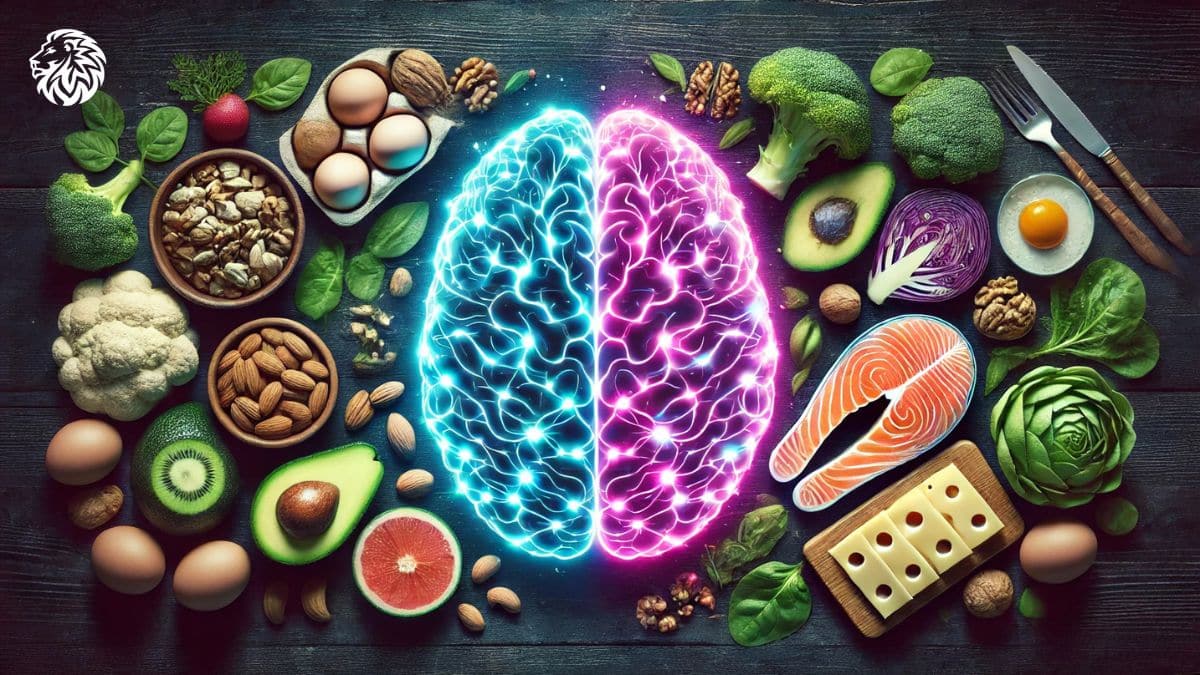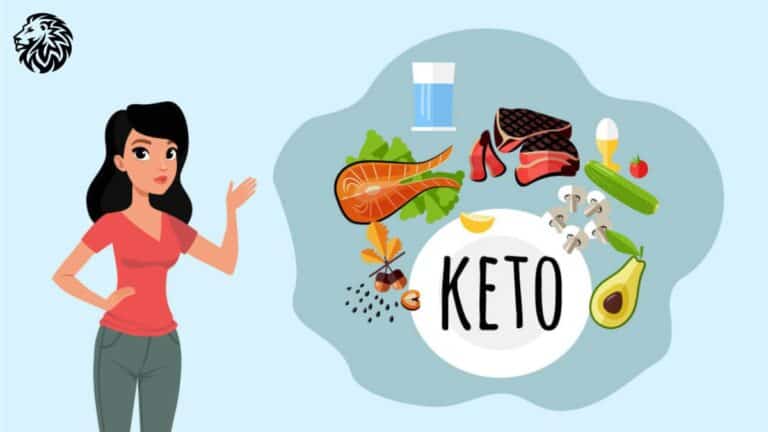Understanding Keto Diet for Epilepsy
Keto Diet Mechanism for Seizure Control
The keto diet is getting quite a buzz for its role in managing epilepsy, especially when meds don’t cut it. This high-fat, low-carb eating style copies how your body behaves when you’re fasting, which surprisingly was a pretty old-school way to deal with seizures. By trimming down your carb intake and upping the fat, your bod enters this state called ketosis. Here, fat becomes your new energy buddy instead of carbs, possibly cranking up those nifty ketones that might just calm down seizures.
Check this out—research has shown that folks with tough-to-treat epilepsy saw some fireworks. A whopping 27% of those with focal seizures and 46% with generalized ones got a break with seizures dropping by more than half after 3 months on the keto wave. And guess what? That relief kept cruising at 6 and 12 months (PubMed).
| Time | Focal Seizures | Generalized Seizures |
|---|---|---|
| 3 Months | 27% | 46% |
| 6 Months | Hanging Around | Hanging Around |
| 12 Months | Still There | Still There |
So, what’s the deal with ketosis putting the brakes on seizures? Well, science says ketones might chill out overexcited neurons, keeping the brain’s party in check and cutting down those pesky seizures. Wanna know more about how this diet might help? Skip on over to our keto diet article.
Effectiveness in Kids with Epilepsy
The keto gig is a real game-changer for kiddos with epilepsy. Flashback to the 1920s and 30s when it stepped onto the scene as an alternative to fasting, earning some serious street cred in seizure control. Fast forward to Peter Huttenlocher’s tweak in the ‘70s—60% of calories from medium-chain triglycerides (MCTs)—which struck a better balance among fats, proteins, and carbs, making life a bit easier for kids on this diet (News-Medical).
Dig into the numbers. Around 40% to 50% of kids diving into the keto lifestyle see their seizures slashed by half. Even more stunning, 10% to 20% of them achieve relief of more than 90%. A massive reduction like this can seriously boost quality of life, giving kids more freedom to enjoy everyday stuff.
| Seizure Drop | Percentage of Kids |
|---|---|
| 50% Off | 40% – 50% |
| Beyond 90% Off | 10% – 20% |
Several studies reinforce these wins, showing how the keto diet can dial back or even prevent seizures for many kids who didn’t get results from meds. Thinking of giving this a shot for your little one? A chat with a healthcare pro is a must to make sure it’s cool and fits their needs. For more on kickstarting a keto adventure and meal tips, swing by our how to start keto diet guide.
Grasping how the keto diet twirls into seizure control can be a lightbulb moment for handling epilepsy. Weighing this eating style for your child? It’s wise to hook up with a doctor to keep everything safe and suited to their specific pack. Dig into meal plans here and grab some recipes there.
History of Keto Diet for Epilepsy
The ketogenic diet isn’t just a fad; it’s got roots in helping those with epilepsy, particularly before the advent of modern medication. Let’s take a stroll through time to see how this diet has shaped the life of many and who blazed the trail.
Evolution of Keto Diet Therapy
Back in 1921, Dr. Russell Wilder at the Mayo Clinic introduced something called the “ketogenic diet” for treating epilepsy. Picture this: it’s a diet where fats make up a hefty 70%-90% of your calorie intake, with carbs and protein barely getting a look in. This dietary shift nudges your body into burning fat for fuel instead of carbs, creating ketones that help reign in those pesky seizures (Johns Hopkins Medicine).
Testing across various institutions like Mayo and Johns Hopkins proved the keto diet’s mojo in curbing seizures in both kiddos and grown-ups.
| Time Period | Key Milestone | Achievement |
|---|---|---|
| 1921 | Dr. Russell Wilder names “Ketogenic Diet” | Unveiled as a way to combat epilepsy |
| 1936 | Dr. Samuel Livingston and Dr. Lydia Pauli’s work at Johns Hopkins | Helped over 33,000 folks with epilepsy |
| 1993 | The case of Charlie Abrahams | Kick-started The Charlie Foundation for Ketogenic Therapies |
| 1998 | Study at Johns Hopkins Children’s Center | Major seizure reduction in kids noted |
Key Figures in Keto Diet Development
Some rockstars have really moved the needle in refining and promoting the keto diet for epilepsy.
- Dr. Russell Wilder: Our guy from Mayo Clinic who gave the diet its name in 1921 and opened the door to using it against epilepsy.
- Dr. Samuel Livingston and Dr. Lydia Pauli: These two were tearing it up back in 1936 at Johns Hopkins Hospital, treating a staggering 33,000 patients with the diet. They found that more than half were completely free of seizures while a quarter saw big improvements (Johns Hopkins Medicine).
- Charlie Abrahams and The Charlie Foundation: Charlie, just a 20-month-old, turned people’s heads when his seizures vanished soon after starting the keto diet in 1993. This miracle led his parents to start The Charlie Foundation, pushing the diet’s epilepsy-fighting potential (Johns Hopkins Medicine).
- Johns Hopkins Children’s Center: In 1998, this place hit headlines with a study showing half of the kids on the keto diet saw a big cut in seizure frequency, with some kids barely having any seizures at all after sticking with it for a year (Johns Hopkins Medicine).
Curious to see if keto can do more than tackle epilepsy, or itching to know how it might play into managing weight and diabetes? Check out our treasure trove of related content right here.
Implementing Keto Diet for Epilepsy
Doctor’s Recommendations
Alright, ready to explore how the keto diet can wrangle epilepsy into submission? First stop: your friendly neighborhood doctor. It’s crucial to get expert advice before diving into this low-carb, high-fat world. Several studies have backed up its mojo, showing a dramatic reduction or complete shutdown of those pesky seizures in kiddos who played dodgeball with medications. Consider the following:
- Initial Chat: Spill the beans with your healthcare guru to see if the keto path is the right one for you or your youngling.
- Seizure Watch: You and your doc will keep a hawk-eye on seizure patterns, ready to kick the diet to the curb if those electrical storms in the brain simmer down for a couple of years (Epilepsy Foundation).
- Check-in Squad: Regular pow-wows with the doc ensure that this journey stays smooth and effective.
Management and Long-Term Considerations
Riding the keto wave for epilepsy management comes with its own long-term toolkit:
- Stick to It: You gotta stick to this diet like glue. A tiny nibble off-course might rock the seizure ship. A good plan is your best buddy keto diet meal plan.
- Balancing Act: Make sure your plate is not only keto-friendly but also provides all the nutrients needed. This might mean getting cozy with certain foods or popping a few supplements.
- End of the Road?: After a couple of peaceful, seizure-less years, your doc might suggest packing up the keto game (Cleveland Clinic). Check with your doc before making any pit-stops or turns.
- Side Quest Awareness: Be on the lookout for those little bumps or big potholes that might come with this diet. Keep your doc in the loop with any concerns (keto diet side effects).
Here’s a little cheat sheet for you:
| What to Keep in Mind | What’s the Deal |
|---|---|
| Stick to the Plan | Maintain diet discipline to keep seizures in check |
| Juggle Nutrition | Balance meals with the right foods and some extra boosts |
| Regular Pow-Wows | Frequent visits to the doc for status checks |
| Ending the Diet | Possible after controlling seizures for 2-3 years (Epilepsy Foundation) |
| Keep an Eye Out | Watch for minor hiccups and major detours |
Taking on the keto diet to tackle epilepsy needs some serious teamwork between you and your healthcare champs. Loads of tips and extra nuggets live in the corners of the internet, like articles on keto grub tips, meal plotting, and kicking things off for a bit of guidance.
Keto Diet and Other Health Conditions
You might know the keto diet best for its role in managing epilepsy, but it’s got more up its sleeve. This low-carb, high-fat eating plan can also be a game-changer for folks dealing with diabetes and obesity, among other issues. So, how can it help you? Let’s break it down.
Diabetes and Obesity Benefits
If diabetes or obesity is a thorn in your side, the keto diet might just be your knight in shining armor. Research has shown that this diet can make managing diabetes a less uphill battle. By cutting down on carbs and letting fat take the spotlight as your main energy source, it helps keep blood sugar in check (Cleveland Clinic).
For folks struggling with severe obesity, keto offers a chance to shake things up. Slashing carbs and boosting fat consumption can shift your body into fat-burning mode. The result? Weight loss and a better handle on related health issues.
| Condition | Benefit | Source |
|---|---|---|
| Diabetes | Makes blood sugar levels easier to wrangle | Cleveland Clinic |
| Obesity | Kicks fat burning into gear and aids weight loss | Cleveland Clinic |
For a deeper dive into how keto helps shed pounds, swing by our keto diet weight loss page.
Considerations for Different Patient Groups
Thinking about going keto? It’s important to tweak it to fit your health quirks and what’s going on in your life. Here’s what to keep in mind:
For Children
For kids rattled by epilepsy that shrugs off medication, doctors often recommend the keto diet. It’s a serious business and needs close monitoring to balance calories, fluids, and proteins just right (Epilepsy Foundation). If you’re weighing the pros and cons for your child, chatting with your healthcare provider is a must.
For Adults
The keto diet works wonders, but its restrictive nature is a turn-off for many adults (Cleveland Clinic). Sticking to a limited menu can be tough in the long run. Still, if diabetes or obesity is part of your story, it could be worth a try with a medical team in your corner.
For General Health
Before jumping onto the keto bandwagon, a doctor’s thumbs-up is important, especially if you’ve got other health stuff going on. Different folks react differently, so personalized medical advice is king. If you’re on the fence about how to get started, check out our how to start keto diet page.
Weighing up what the keto diet has to offer for various health conditions helps to figure out if it’s the right fit for you. For more highpoints on health benefits, our keto diet benefits page is the place to go.
Potential Complications of Keto Diet
Thinking about jumping on the keto bandwagon? Before you dive into the deep end of bacon and butter, there’s some stuff you gotta know. The keto diet can work wonders for folks dealing with epilepsy, but watch out for a few bumps on the road. Knowing these drawbacks can help you figure out if keto’s your jam or not.
Common Side Effects
Starting out on a keto diet? Don’t freak out if you feel a little funky at first. Your body might need time to adjust to its new fuel.
Tummy Troubles: You might notice your stomach acting up with things like constipation, diarrhea, or even throwing up. Why? Your body is freaking out about the lack of carbs it’s used to. Things like acid reflux can also rear their ugly head. But hey, it’s just your body whining. It’ll come around.
Sugar Dips: In the beginning, your blood sugar might drop like a roller coaster. Feeling dizzy or shaky? That’s your body’s way of saying, “Hey, where’s my sugar fix?”
Sour Blood: With the body burning fat like it’s gone out of style, ketones surge, sometimes causing the blood to get all acidic. It’s called metabolic acidosis, and it’s not exactly a walk in the park.
| Side Effect | Description |
|---|---|
| Tummy Troubles | Constipation, diarrhea, vomiting, acid reflux |
| Sugar Dips | Low blood sugar levels |
| Sour Blood | Blood becomes too acidic |
Want some tips to keep these issues in check? Our pieces on keto diet side effects and keto diet supplements are gold mines. Check them out.
Rare and Serious Complications
Even though these don’t happen often, it’s smart to keep an eye out for the biggies. And hey, don’t hesitate to call your doc if you’re feeling off.
Pancreas Drama: If your pancreas throws a tantrum (read: inflammation), it might mean hitting pause on keto.
Heart Stuff: Your heartbeat’s rhythm could play a funky tune, or you might deal with a heart disease called cardiomyopathy. Blame it on lack of certain nutrients like selenium.
Kidney Grumblings: On the flipside, your kidneys might kick up a fuss. We’re talking kidney stones. Especially if you’re on medication for epilepsy like zonisamide or topiramate. Supplements like potassium citrate can be heroes here.
Skin Freakouts: Ever heard of prurigo pigmentosa? It’s this annoying rash that can show up when you start the diet. Up your carbs a bit or ask your doctor about treatments like tetracyclines if your skin’s throwing a fit.
| Severe Complication | Description |
|---|---|
| Pancreas Drama | Inflammation of the pancreas |
| Heart Stuff | Rhythm changes, Cardiomyopathy |
| Kidney Grumblings | Kidney stones |
| Skin Freakouts | Rash: prurigo pigmentosa |
Knowing what you’re up against helps decide if eating piles of bacon is worth it. Wanna read more about how keto plays with diabetes or obesity? Browse our article on keto diet and diabetes.
Before you strap on your keto shoes, have a chat with your doctor. They can help you dodge the bad stuff and soak up the good. And for all the deets on making your keto adventure a safe one, sneak a peek at our super handy how to start keto diet guide.
Research and Future of Keto Diet
Innovative Studies on Gut Microbiome
Breaking news, folks! Scientists discovered that the keto diet works wonders for your gut buddies, also known as the microbiome. And it’s not just about better digestion – it even helps with seizures. The switches flipped by the keto diet in the gut might offer a layer of security against those surprise neurological attacks, as noted by a batch of studies.
A UCLA crew dove into this and splashed their findings in Cell Reports. They figured out the keto diet tweaks gut jobs tied to burning fat and amino acids in a way that helps fend off seizures, especially for kiddos dealing with epilepsy. More twisty details? They tried something pretty wild – giving mice fecal transplants from kids on the diet. Those mice? Totally rocked with seizure resistance compared to their pre-diet counterparts. These results are hinting big-time at fresh ways to tackle epilepsy, especially for folks not getting help from the usual medicine.
| What They Found | Where They Found It |
|---|---|
| Gut changes aid fatty acid and amino acid work in young epilepsy patients | UCLA Health |
| Mice with poop transplants from keto diet patients resisted seizures | UCLA Health |
Advancements in Keto Diet Research
The story of the keto diet solving epilepsy struggles is as old as your grandma’s watch. It kicked off in 1921 when Dr. Russell Wilder at the Mayo Clinic threw the term “ketogenic diet” out there. It was a way to fool the body into thinking it’s running on empty – burning fat for energy and saying bye-bye to seizures (Johns Hopkins Medicine).
Pioneers like Dr. Samuel Livingston and Dr. Lydia Pauli at Johns Hopkins dug deeper. They roped in over 33,000 patients and boom – more than half shook hands with a seizure-free life, while a sizable chunk saw their seizure troubles shrink. That’s quite the success story (Johns Hopkins Medicine).
Even fresher experiments solidify the diet’s mojo. The “150 Study” highlighted that over half the kids kept up with the diet after a year, and more than a quarter enjoyed a serious drop in seizure episodes.
| Who, What | Findings That Wow |
|---|---|
| Dr. Samuel Livingston and Dr. Lydia Pauli at Johns Hopkins | 54% of patients seizure-free, 26% showed major improvements |
| “150 Study” at Johns Hopkins | 55% hung onto the diet after a year, 27% saw >90% seizure drop |
If you’re curious about using the keto diet for health gains, staying in the loop with new studies is your best bet. Don’t miss out on our guides: how to start keto diet and keto diet benefits for more nuggets of wisdom.







